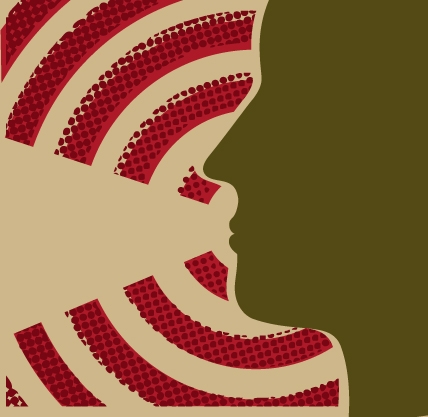
My husband has aphasia as a result of a TBI. How can I help other people feel more comfortable talking with him?
Let's start with a definition. Aphasia is a communication disorder that affects the ability to use or understand language. It can affect the ability to talk, understand speech, and read and write, but does not affect intelligence. It is typically acquired as a result of a stroke or other brain injury.
Since most people don't know what aphasia is, they don't know what to expect. Encourage family and friends to learn about aphasia before they see your husband. Here are some other tips for the family and friends of someone with aphasia.
- Ask others to follow your example and watch what you do when you talk with your husband.
- Try to keep gatherings small so there are fewer distractions.
- Encourage family and friends to ask questions that can be answered with a yes or no. This will help keep your husband from feeling too pressured.
- Start the conversation with familiar topics like sports, family, or the weather. (For example, “Did you see the game last night?”) If your husband gets stuck, the other person will be able to keep the conversation going.
About the author: Janet Brown, MA, CCC-SLP
Janet Brown, MA, CCC-SLP spent twenty years in practice at the Veterans Administration Medical Center and at the National Rehabilitation Hospital in Washington, DC. She is the former director of Health Care Services at the American Speech-Language-Hearing Association.


Comments (6)
Please remember, we are not able to give medical or legal advice. If you have medical concerns, please consult your doctor. All posted comments are the views and opinions of the poster only.
Alicia P. replied on Permalink
My dad suffered from a TBI four years ago. He still has a trach which he recieved in route by care flight. My dad has no issues communicating, he understands you, loves jokes, knows his letters and can still sort of spell. Even his memory had proven to be fully In tact. However, it is once in a blue moon when you actually hear his voice rather than just silent mouthed words. Maybe 5 times in 4 years has he spoke. Could last an hour or a day we never know. Oh and due to him losing his right eye it's been like impossible to calibrate anything with eye gaze technology :( any ideas or input would be great. Thanks
Anonymous replied on Permalink
It might not help others but I also have dealt with aphasia post injury - one thing that helped me alot was to read familiar books (or songs or bible passages) outloud - the words were provided for me, it gave me the exercise of talking out loud and helped my confidence. As well, when I look at an object I list several names for it so if I miss the one I intend to use (eg monitor) I can sub it with others (eg. screen, tv, display unit for computer).
Anonymous replied on Permalink
My TBI happened in October 2003. I soundly like the Muppets Swedish chef. I went though speech therapy for a year (Oct. 2003 - Sept. 2004). My aphasia is pretty much under control as long as I don't try to talk too fast or if I'm tired. The good thing is that I notice it happening faster then the people I talking with hear it. When it does happens, I just say something like "let me try again" or groan and use the right word I missed. - Ric
Anonymous replied on Permalink
I agree with the need of more rehabilitative facilities :)
Anonymous replied on Permalink
My son also has Aphasia from a motorcycle accident in 2006. It keeps him from conversing with almost everyone except yes and no answers. He no longer has a social life except for our small family unit. Wish there were more treatment options nearby.
Anonymous replied on Permalink
My son has a tbi he has a lot of trouble talking. This happened in 2009. He is just now starting to make progress. If anyone has any ideas .